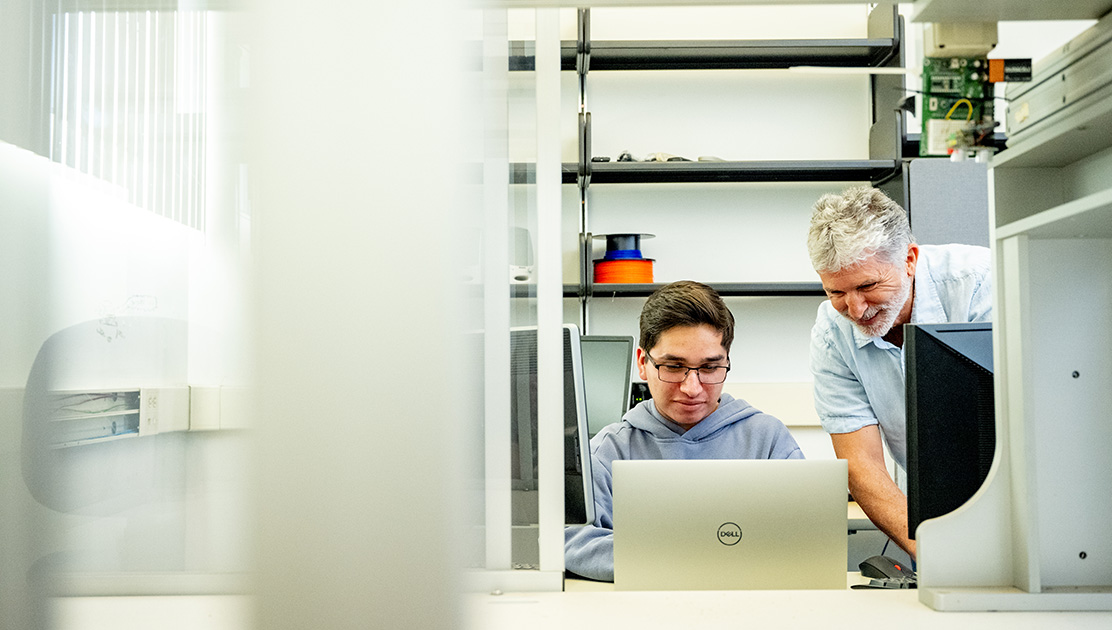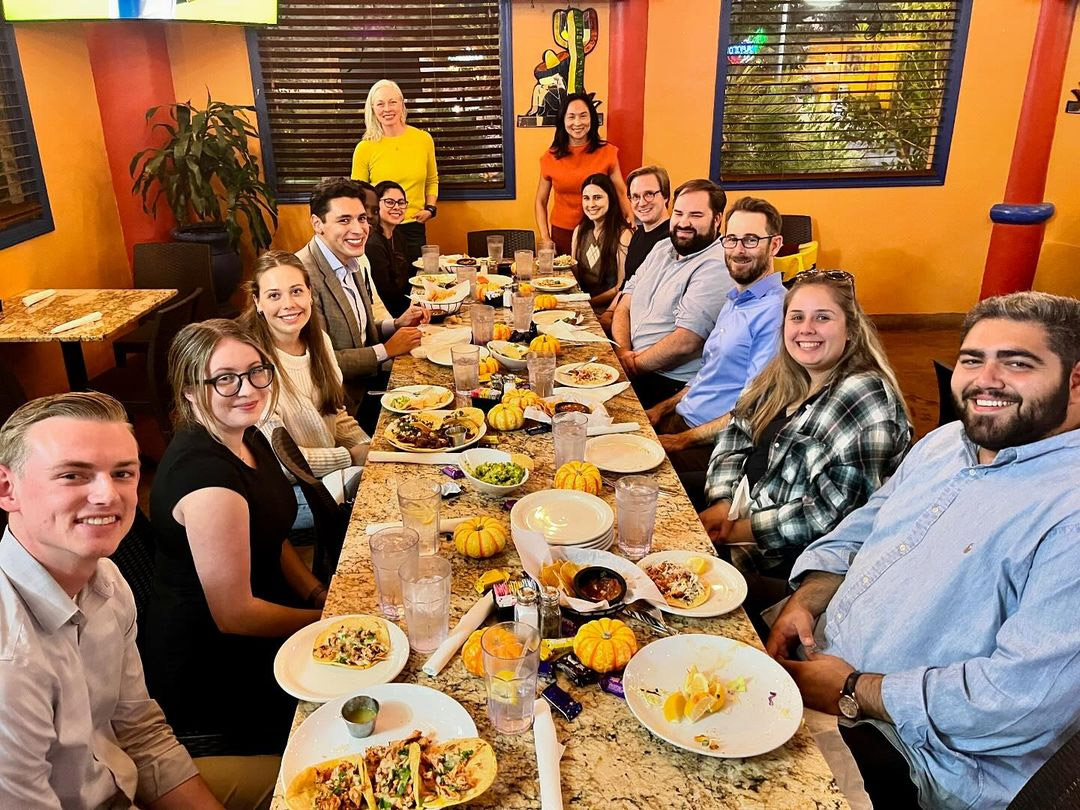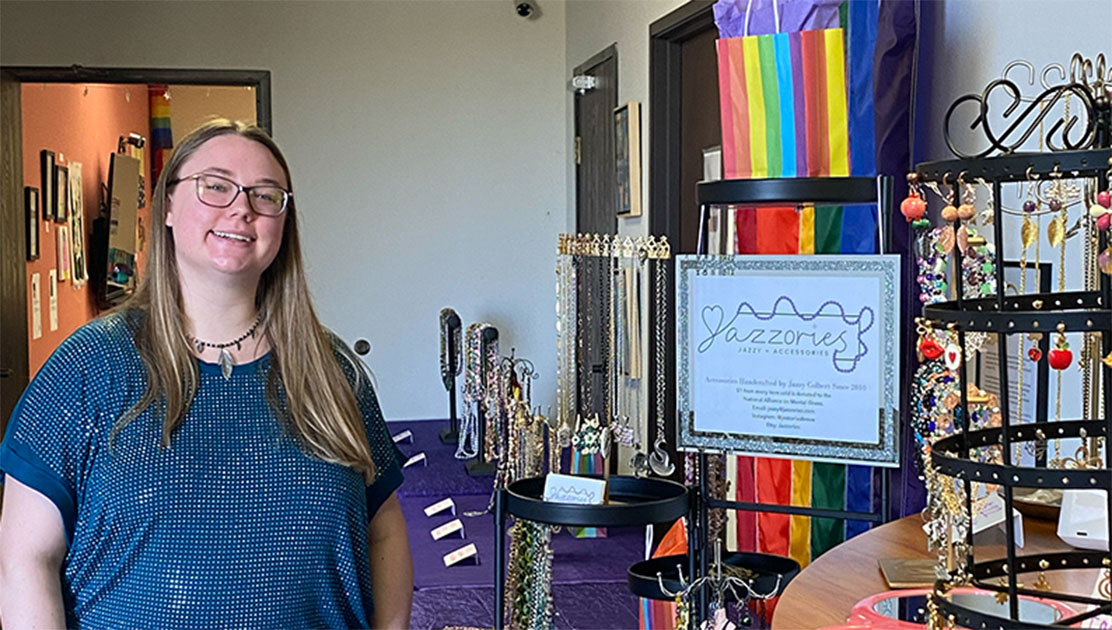Want to uncover a roadmap for your future?
A liberal arts education helps us understand what it means to be human by asking big questions and considering multiple perspectives.
And it covers some of the very first subjects ever to be studied in colleges and universities, including literature, philosophy, sociology, mathematics and even the physical sciences.
But are the liberal arts still worth studying in today's world? If you want a future-proof college education — absolutely.

1. Personal support and attention = success
Liberal arts programs — and colleges that offer them — provide an individualized educational experience.
In contrast to large universities that pack hundreds of undergraduate students into huge lecture halls, liberal arts institutions personalize the student experience by offering small class sizes, easy access to faculty and advisors, and a close-knit residential community that fosters long-lasting relationships.
Small class sizes with professors who care about teaching
At a liberal arts institution, your professors' main priority is to teach engaging courses with discussions that encourage critical thinking, communication, and collaboration. This is a valuable feature compared to most large universities, where faculty are incentivized to focus more on their academic research interests than the quality of their teaching.
A learning environment that helps you explore
Overall, the student-centered approach of a liberal arts education creates an environment that allows you to explore and grow. This can be especially helpful if you are undecided about your future direction, since it supports your personal development and can help you overcome barriers on the path to graduation.
Pro tip: Look for academic programs that guarantee you'll graduate within four years

A faculty member advises a student with an assignment in the Cal Lutheran computer
science lab.
2. Creative inspiration for the future
When you pursue a liberal arts education, you're exposed to a diverse range of perspectives that teach you how to think outside the box, challenge assumptions, and develop solutions to unique problems.
This creative mindset is highly useful in today's rapidly evolving world, where innovative thinking is crucial for success in any field of work. Human creativity will only become more important over time, as AI increasingly takes over anything that can be easily automated or predicted.
High impact innovations often begin with a personal source of inspiration, and a liberal arts education offers plenty of these opportunities. Whether through academic credit for research projects, internships, study abroad programs, or other extracurriculars that you explore in college, your most meaningful discoveries may come from something special that inspires you outside of the classroom.
Want to know the real secret? The value of a creative mindset won't just help you right after graduation, but throughout your entire career.
See how Cal Lutheran has served as a vital starting point for these students and alumni:
Being Jazzy
With a new book, this Cal Lutheran senior prepares to launch into a creative career aimed at helping those living with OCD.
3. Skills for jobs in tech, AI and beyond
It may surprise you to learn that the recent surge in technology and artificial intelligence has created many new types of jobs, not just for IT and computer engineering, but also for the liberal arts.
As developments advance, the most successful projects will be those that prioritize human values and needs — which liberal arts graduates are equipped to address.
By using the skills you'll gain in emotional intelligence, ethical reasoning, social justice, and human behavior, you may find yourself interviewing for future positions as a Policy Specialist, Content Coordinator, Trainer/Educator, Project Manager, Business Development Strategist, Account Manager, or other interdisciplinary roles in cutting-edge tech startups and leading corporations.
Whether you choose to pursue a technology career path or you prefer the greater stability
of options in nonprofit, education, government, and other sectors, the liberal arts
will equip you to ask critical questions that help your employers utilize technology
through socially responsible, equitable, and beneficial means.
It is in Apple’s DNA that technology alone is not enough—it’s technology married with liberal arts, married with the humanities, that yields us the results that make our heart sing.
- Steve Jobs, former CEO of Apple
Tech employers of Cal Lutheran graduates:
- Aerojet Rocketdyne
- Amazon
- J.D. Power & Associates
- Intel
- Sony
- Starship Technologies
- Teradyne
- Tesla
- Yardi Systems
- See more by major
4. Powerful and flexible career paths
Throughout the first quarter of the 21st century, the number of changes of career direction (not just jobs) within modern career paths is looking higher than ever — and the liberal arts can help you adapt.
Change is the only constant
Due to constantly evolving geopolitical, social and environmental factors, nonlinear career paths are the new normal.
It's no longer as common as it once was to have a straight path up the career ladder.
Employers like adaptability
About half of workers' core career skills will need to be updated every five years in order to stay relevant through the 21st century.
Students benefit from a flexible foundation as a starting point.
Students are multitalented
As a multitalented group with a wide range of interests, many new college graduates hope to pursue multiple professions over their career — rather than feeling limited to one lifelong profession.
Skills with highest value:
- Creative thinking
- Analytical thinking
- Technology literacy
- Curiosity and lifelong learning
- Resilience, flexibility and agility
* Source: Future of Jobs Report 2023, World Economic Forum. Based on survey of 803 companies across all industries globally.
Liberal arts degrees provide job security through career flexibility
Given this trend, it will be important to establish yourself as a lifelong learner who can turn career changes into advantageous professional opportunities. A liberal arts education can provide you with this hidden superpower: an interdisciplinary and well-rounded base of knowledge that is strong in critical thinking, communication, and problem-solving. With these versatile abilities, you'll have a transferable skillset that helps you flex to the core qualifications required for your next role.
For the best outcomes, consider graduate school
A recent Strada Education report found that you can enhance your earning potential significantly by pairing a liberal arts major with a graduate degree — pointing to the long-term gains of the liberal arts.
A liberal arts education teaches you how to develop fundamental questions and theories about the world around you. With these core skills, you can evaluate, investigate, and think critically about any issue. This positions you not only as a contributor — but also as a leader — in your future profession.
Brian J. Collins, Ph.D.
Associate Professor & Chair, Philosophy Department
5. Networks and relationships
With small class sizes, individualized attention from your professors, and a strong on-campus community, a liberal arts education often gives you endless opportunities to build meaningful connections — both personally and professionally.
When you attend a liberal arts university, you often gain access to networks of successful alumni who have graduated from the institution and want to stay connected through guest speaker panels, mentorship programs with current students.
Networking opportunities typically continue after graduation, too, creating a lifelong network of support that can significantly enhance your career prospects and give you a crucial edge
in a competitive job market.
Check out what Cal Lutheran alumni have been up to!
See the amazing accomplishments that our graduates have pursued in their local communities since leaving Cal Lutheran. Read alumni stories

Political Science alumni and faculty connect at Homecoming Weekend.
Want to learn more?
Complete this form and we'll add you to our email list.
We'll also keep you updated on admission deadlines and tell you more about our academics and campus life.




